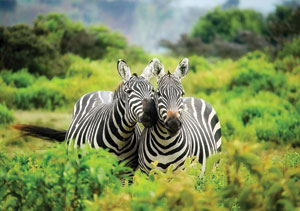Crimes that affect the environment
You are here : Home / What We Do / Environment
"Wildlife and forest" refers to all plants and animals (flora and fauna) including birds and marine species, as well as timber and non-timber forest products. Broadly speaking "wildlife and forest crime" is the illegal exploitation of the world's wild plants and animals.
Wildlife and forest crime has transformed from an emerging threat into one of the largest transnational organized criminal activities. Criminals are using the same routes and techniques for wildlife trafficking as for smuggling of other illicit commodities. They are exploiting gaps in national law enforcement and criminal justice systems. The billions of dollars generated by this illegal business are being used to further nefarious ends. In some cases money goes to financing terrorism and contributing to instability.
Wildlife and forest crime is particularly high in developing countries. This is because their governments often lack the capacity to regulate the exploitation of their natural assets. These crimes threaten biodiversity, endangered species and the livelihood of people. They also severely impact national security, social and economic development.
Visit our Crimes that affect the environment global website for more information.
Our work in Eastern Africa
UNODC identified the need for implementing projects that address preventing corruption within state agencies, specifically in this context, wildlife authorities.
Cross-Regional Wildlife Conservation in Eastern and Southern Africa and The Indian Ocean
Support provided as an immediate response to the COVID-19 Pandemic in Kenya


